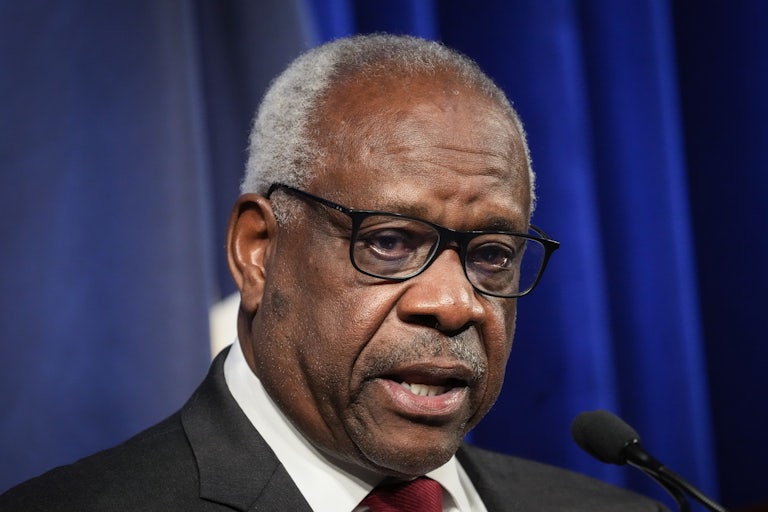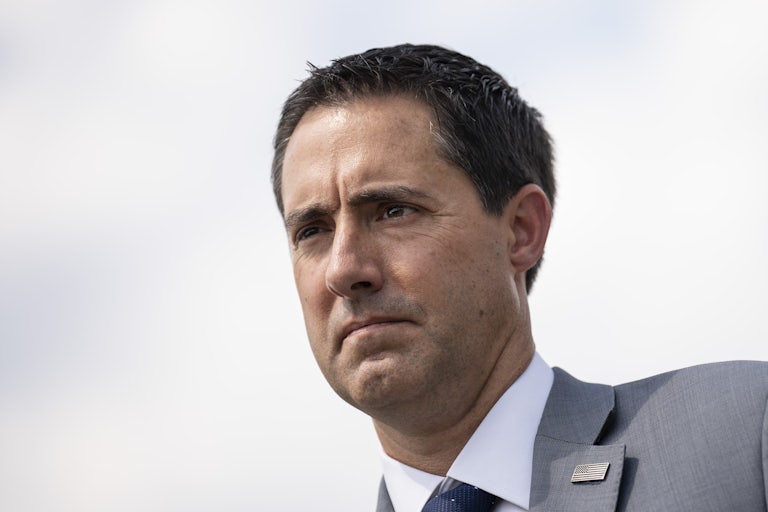“Abuse of Power”: Clarence Thomas Scandal Is Worse Than You Thought
A stunning new report reveals how the Supreme Court justice sold access to the Supreme Court, as his Republican billionaire friends lavished gifts on him.

Clarence Thomas has for years hosted charity fundraisers in the Supreme Court building for his Republican billionaire friends. In return, they have taken the justice on dozens of luxury vacations worth millions of dollars, according to a stunning new ProPublica report.
“To use the Supreme Court to fundraise for somebody’s charity is, to me, an abuse of office,” Virginia Canter, a former government ethics lawyer who served in both Republican and Democratic administrations, told ProPublica. “It’s pay to play, isn’t it?”
ProPublica found that Thomas has happily accepted at least 38 luxury vacations from four different billionaires: Harlan Crow, David Sokol, H. Wayne Huizenga, and Paul Novelly. The gifts include yacht trips around the world, tickets to sporting events, transport on private jets, and stays at their exclusive resorts and private properties.
NEW: Think you know that Clarence Thomas has wealthy patrons?
— Jesse Eisinger (@eisingerj) August 10, 2023
You don’t know the tenth of it.
We assembled the most comprehensive account yet of his secret luxury travel—paid for by many billionaires.@BrettMmurphy & @Amierjeski:https://t.co/IqZPnfWYOw pic.twitter.com/cJ3hb03MMd
Thomas has disclosed none of these gifts on his financial statements, but ProPublica estimates the total value to be in the millions. And this is likely just the tip of the iceberg.
“It’s just the height of hypocrisy to wear the robes and live the lifestyle of a billionaire,” Don Fox, the former general counsel of the U.S. Office of Government Ethics and the senior ethics official in the executive branch, told ProPublica.
Thomas likely met all of his billionaire sugar daddies through the Horatio Alger Association, which costs $200,000 to join. Thomas was inducted into the society in 1992, a year after he joined the Supreme Court bench. He now hosts an annual fundraiser for the association in the Supreme Court’s Great Hall. Attendance costs $1,500 for members (five times that for nonmembers).
The Supreme Court does not have an official code of ethics, but the justices say they consult the judiciary’s code of conduct. That code explicitly discourages federal judges from using their position to fundraise for outside organizations.
Some of the gifts Thomas has accepted from his Horatio Alger friends include a trip on Sokol’s private jet to his private ranch in Wyoming (valued in the low eight figures), a deep-sea fishing trip in the Caribbean on one of Novelly’s yachts, and a standing invitation to Huizenga’s members-only golf club. Huizenga sold the club in 2010, and it currently has a $150,000 initiation fee.
Thomas was already under fire for failing to report the many gifts he received from Crow, which include island-hopping yacht vacations and tuition for Thomas’s nephew. The Nazi memorabilia collector Crow also bought and renovated a Thomas family property, where Thomas’s mother still lives.
The justice’s behavior prompted increased scrutiny on the Supreme Court, and the Senate Judiciary Committee advanced a bill that would require the justices to adopt a code of ethics. The measure would create rigorous new financial disclosure rules, as well as establish a process for submitting and investigating ethics complaints against the justices.
Read ProPublica’s full story here.








